- Home
- Hazel Hunter
Gavin
Gavin Read online
Table of Contents
Chapter One
Chapter Two
Chapter Three
Chapter Four
Chapter Five
Chapter Six
Chapter Seven
Chapter Eight
Chapter Nine
Chapter Ten
Chapter Eleven
Chapter Twelve
Chapter Thirteen
Chapter Fourteen
Chapter Fifteen
Chapter Sixteen
Chapter Seventeen
Chapter Eighteen
Chapter Nineteen
Chapter Twenty
Chapter Twenty-One
Chapter Twenty-Two
Chapter Twenty-Three
Chapter Twenty-Four
Chapter Twenty-Five
Chapter Twenty-Six
Chapter Twenty-Seven
Chapter Twenty-Eight
Chapter Twenty-Nine
Chapter Thirty
Gavin
Immortal Highlander Book 5
Hazel Hunter
Contents
HH ONLINE
Chapter 1
Chapter 2
Chapter 3
Chapter 4
Chapter 5
Chapter 6
Chapter 7
Chapter 8
Chapter 9
Chapter 10
Chapter 11
Chapter 12
Chapter 13
Chapter 14
Chapter 15
Chapter 16
Chapter 17
Chapter 18
Chapter 19
Chapter 20
Chapter 21
Chapter 22
Chapter 23
Chapter 24
Chapter 25
Chapter 26
Chapter 27
Chapter 28
Chapter 29
Chapter 30
DO ME A FAVOR?
MORE BOOKS BY HH
Glossary
Pronunciation Guide
Copyright
Making Magic
HH ONLINE
Hazel loves hearing from readers!
You can contact her at the links below.
Website: hazelhunter.com
Facebook: business.facebook.com/HazelHunterAuthor
Newsletter: HazelHunter.com/news
I send newsletters with details on new releases, special offers, and other bits of news related to my writing. You can sign up here!
Chapter One
THE PEARL-CAPPED sapphire waves of the North Sea lashed Gavin McShane as they buffeted the hull of the old boat. With practiced skill he guided the fisher into Scapa Flow, navigating his way through the boats and ships making passage between the islands that protected the wide but busy bay.
Overhead black wing-tipped gannets soared, diving now and then to scoop up fish to feed the screeching young waiting in their remote cliffside nests. Clear skies stretched wide and icy blue over the islands of Orkney, which resembled giant, rough-cut emeralds tumbling away from the north coast of Scotland. Gavin smiled a little as he passed other fishers that had yet to sail, or had returned with empty nets. Their crews cast envious looks at the mounds of cod heaped on the fisher’s deck.
“See it and weep,” Gavin murmured under his breath.
Being a twenty-first century man working on a medieval fishing boat had proven surprisingly satisfying. He no longer had to bother with phones, computers, cars, doctor’s appointments, his walker or the disease that had been killing him in the future. Since time-traveling back to fourteenth-century Scotland, Gavin had enjoyed perfect health.
But he’d only achieved peace when he’d come to the islands.
Still, today’s fine catch would pay his wages for three days, which would permit him the rest of the week to work on putting a roof on his house. He couldn’t wait to finish it so he could move to Marr, the little jewel of an island he’d found off the coast of Hrossey.
“McShane,” Bjarke Moller said as he came to join him at the helm. He was one of the three brothers who owned the boat. A burly man with strong arms roped by hard muscle and deep scars, he devoted himself to three pleasures in life: fishing, drinking and wenching. “Kron says you’re no’ to the alehouse with us. ’Tis true?”
“The salr needs work,” Gavin replied. He now spoke without thinking in a thickened version of his natural brogue, but he still hesitated on some of the islander slang. But the salr—his house—was something he’d talked about for months. “I can drink any day. I cannae sleep in my salr without a roof.”
“But you build on Marr, man?” That came from Silje Rowe, one of the net casters. The reedy, perpetually worried man touched the little wooden fish charm he wore around his neck. “No man goes near that island. ’Tis cursed.”
“Och, aye, ’tis haunted by the ghost wench,” Bjarke said and rolled his eyes. “She wears a torn blue gown and floats about the glen flashing her teats and arse. What does she now, steal men’s souls or eat them? I cannae recall.”
“Dinnae jest about the Blue Lady of Marr,” Silje warned. He clutched his talisman tightly, and lowered his voice to a whisper. “’Tis said she seeks vengeance for her tribe. They were massacred by blood-drinkers.”
Gavin generally didn’t mind listening to the fishermen’s tall tales, but this one reminded him too much of the reason he had come to the islands to disappear. “I should see to the haul now.”
“Aye, do,” Bjarke said and took his place at the helm. “Silje, we’re nearly to dock. Stop your havering and go ready the vind-áss.”
Windlass, Gavin silently translated, the pulley and rope system they used to lift their heavy haul. When he’d first arrived in Orkney the islander’s odd hodgepodge of Scottish and Norse had forced him to say little until he built a rough working vocabulary. He’d probably never learn all of the slang, so he focused on words related to fish, the sea, and his work on the boat.
The crew got busy as they docked by the fish monger’s pier. Hoisting the burgeoning nets meant hand-cranking the windlass before they swung the cod over to empty them into waiting carts. Once the catch was offloaded, the men worked together as a brigade to sluice the upper deck clean with buckets of salt water. Then they hung the thistle-hemp nets to dry.
The day’s tasks finished, the crew lined up to be paid by Bjarke, who promised them more work at the end of the week. As the newest deck hand Gavin was always the last to be paid. He had to trot to make the ferry that circled the bay to deliver people and supplies to the homes on the smaller islands. Gavin was the only one to disembark at Marr, and as he did he could feel the weight of the other passengers’ gazes on his shoulders.
Stepping off onto the island’s only dock, which was old but sturdy, he shouldered his pack and headed for the forest. Reaching the spot he’d chosen to build his house meant crossing the glen Silje claimed was haunted, although Gavin had never spotted anyone there. He liked to bathe in the fairy pool near the trees, and sometimes he jogged along the perimeter to stretch his legs. He’d been coming here for months and hadn’t seen anything but deer, rabbits and the funny-looking broad-beaked puffins who nested on the rocks.
Whether the ghost stole souls or ate them, she didn’t seem very interested in his.
The first sight of his half-finished cottage made Gavin feel an intense satisfaction. One dream he’d always had was to build a house with his own hands. As a teenager he’d landed a summer job as a gopher on a construction site, and soaked up everything the masons and carpenters were willing to teach him. Although the materials in the fourteenth century were much more primitive, he’d assumed the method would be the same: put down a strong foundation, build sturdy walls with framed openings for the windows and doors, and cap it off with a beamed roof.
/>
Reality set in when his first attempt at building had collapsed it on itself while he’d been off crewing for the Moller brothers.
Gavin didn’t waste any more time making assumptions. He’d learned which of his crewmates had built their own houses, and grilled them for details. That garnered him an invitation to visit Silje’s home on Hrossey, where the net caster was working on an addition for his growing family. After meeting his crewmate’s five children, along with his shy and very pregnant wife, Gavin could see why he needed the extra space.
“Why do you build two walls?” Gavin had asked as he inspected the double structures framing the new room.
“They become one wall when I fill the space between them with earth and rock. The thickness keeps out wind and cold, and makes the walls stronger.” Silje pointed to the curving timbers he’d lashed together in the shape of a capital A. “Between the fill I stack red stone, with a hollow in the very top fitted to the ends of the roof beams. They need to stay in place if they are to hold the roof.”
Gavin offered to help the net caster finish the addition, and spent another month in his free time getting the hands-on experience he needed to start over on his own cottage. It proved to be hard but satisfying work. Silje explained everything he did, and even demonstrated how to properly carve fitted wooden joints, weave denser thatching, and make clay mortar stronger by adding dried grass and crushed shells. All the work had to be done with only the most basic of tools and no hardware at all, but Gavin eventually began to appreciate how resourceful the islanders were.
As the children got to know him, he often found himself the center of their attention. Little sword fights with the boys and rides on his back for the girls soon became a treasured part of the day. When he’d been young, Gavin had just assumed he’d have a family. ALS had cut off that possibility. But now he even took up drawing again to surprise Silje’s wife with sketches of her children.
“You’re an odd one, McShane,” the net caster said when they finished pinning the last bundle of thatching with bent willow twig spars, which to Gavin looked like large wooden staples. “I couldnae wheedle my cousin to come help a day, and here you do half the work for naught.” He frowned. “Didnae your people build in the highlands?”
Gavin imagined telling his crewmate how houses would be built in seven hundred years. “They’ve a different way of it.”
From the rocky shore of his own island Gavin sourced the weathered red sandstone for his foundation and walls, which he hauled to his building site on a handmade sled. Clay he dug and carried in buckets from the banks of the stream that snaked through the forest. The curved timbers for his roof came from trees growing on hill slopes. He used his earnings to purchase a hammer, ax and knife from the town blacksmith, and learned to whittle pins and pegs during lulls of work on the boat.
But he still made errors. He’d already learned that he was only a passable carpenter, and his masonry would never win any prizes. Even so he learned from every failure, and never made the same mistake twice. Now he had three days to place his roof frames over the cottage walls, and cover them with the thick panels of thatching he’d been weaving for weeks. He’d even constructed a ladder to give him better access to the top of the cottage.
The next time he came back to the island, it would be to live here, in this quiet, fragrant valley where everything was new and green and peaceful.
As Gavin approached the cottage he saw a flicker of movement at the back wall, where two of the island’s small deer liked to graze on the sweet grasses that grew there. He dropped his pack deliberately to make noise, and the clank of his tools scared a pair of ducks into flight. He hadn’t yet gone hunting on the island, preferring to bring his share of the day’s catch or food he purchased on Hrossey. Once he moved into the cottage he’d have to start putting out snares, or stick to a seafood diet.
He’d hunted very successfully in the highland forests on the mainland, but he’d been hesitant to do the same here. All of the island’s animals seemed remarkably interested in him, as if they’d never seen a man—or never been hunted.
The ducks he’d frightened away flew back around to perch atop his pile of building timbers. One was a striking black and white with a startling patch of green on its neck. The other had striped brown and cream feathers. A mated pair, Gavin decided, since they had the same wedge-shaped bill and bulky body shape. He’d seen others waddling in twos through the glen, probably hunting for safe nesting spots.
“You’ll no’ find a kindred spirit here,” he told the ducks as he stripped off his jacket and rolled up the sleeves of his work tunic. “There’ll be no wife or bairns coming to your island. ’Tis a bachelor’s cottage I’m building.”
Even when he was alone Gavin tried to speak in the heavy brogue of the islands. Somehow it made him feel more vital, and less like a dying cripple who had been flung through time to be cured and then nearly destroyed.
The ducks didn’t seem impressed by his mastery of medieval speak, but they kept watching him as he checked his first roof beam assembly and set up the rope and wheel hoist to raise it over the walls.
The physical work of lifting two hundred pounds of timbers over his head made Gavin glad he’d built up plenty of muscle working for the Mollers. He’d never get tired of the pleasure of being strong again, not when he’d spent two years slowly wasting away in the prison his disease had made of his own body. Just before falling through time he’d lost the ability to walk without support. Now when he pulled on the rope hoist, the roof beam rose over him as if he’d built it from twigs.
He worked until the moon rose, and stars glittered in the pale darkness that passed as night in the islands. By morning the mortar would set, and he could install the permanent cross beams that would provide more support for his roof.
The work left Gavin sweaty, grimy and tired, but he wouldn’t trade the aches in his arms and shoulders for the world. After he unpacked the food he’d brought with him and ate a quick meal of smoked fish on black bread, he decided to go for a bath.
Hiking out to the spring near the center of the glen took time, but Gavin didn’t mind the long walk. Too shallow for a soak, the water of the forest stream was also freezing cold. He’d discovered just the opposite when he’d seen steam rising from the glen’s spring one morning, and walked over to inspect the crystal-clear waters. Somewhere under the jagged-edged, deep pool was a thermal pocket that kept it warm.
Once he reached the spring he stripped to the skin and jumped in. Being immersed in the heat immediately loosened his knotted muscles, and by the time he surfaced he felt utterly relaxed.
To Gavin’s surprise he saw the two ducks had followed him from the cottage, and were now sitting on a flat rock as they watched him tread water.
“I cannae have pets,” he told them as he swam over to the side and propped his arms on a long stone perfectly curved for that purpose. “I’ve no idea what ducks eat, and your lady there looks a bit plump. Does she eat for two, then?”
A strange tension at the back of his neck made him look around. But as he did the faintest floral scent drifted past his nostrils. Never one for gardening, Gavin had no idea what the flower he smelled might be, but it wasn’t the first time. As it had on other occasions, the familiar aroma cast his mind back to the country farmhouse that he and Jema had shared. Though she’d enjoyed gardening, she never had the time. He smiled to himself as he remembered the slight young woman who’d accompanied their gardener. Jema had been thrilled with how the flower beds had bloomed under their care. Gavin had been content to watch the lass from his window.
The male duck made a muted squawking sound that brought Gavin’s attention back around. The bird stretched open his long beak as if he were yawning, and then nudged the female to her feet. They waddled off to disappear in the shadows.
Rejected again.
Gavin’s smile vanished along with his good mood, and he climbed out of the pool. The moon silvered his tanned limbs and broad, ripped tors
o, and for a moment he looked like a ghost. Wasn’t that what he’d become since his immortal lover Thora had betrayed him, and his twin sister Jema had left him for dead? A solitary specter of himself, playing at being a highlander-turned-fisherman—a joke of a man who had nothing and no one but himself.
He’d let go of his love for Thora. Nothing he could do would bring her back from the grave a second time. Even if he could, she’d never truly loved him. But missing Jema ate at him, for they’d been each other’s best friends. Gavin knew he’d been a burden on her for years. Even though he was no longer sick his sister had started a fresh, new life with her Viking and his clan.
Discovering in one day that the two most important women in his life had never really needed him had devastated Gavin. Coming to the islands to begin a new life had been the right decision. He could build a life for himself here. Maybe someday he’d meet someone who’d want to share it—an ordinary, healthy, fourteenth-century lass who wouldn’t hold a blade to his throat as she betrayed him.
Chapter Two
MIST SWIRLED AROUND Catriona Haral’s clogs, chilling her toes and promising to veil the glen in heavy dew before sunrise. She glanced down at the eider ducks standing by her feet.
You’ve done well, she thought to them, and projected a memory of a sheltered niche she’d noticed near her village. Go on with you, before the voles take it for their pups.

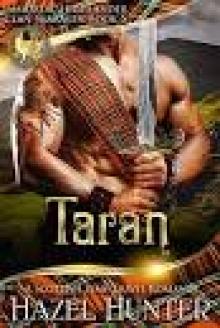 Taran (Immortal Highlander, Clan Skaraven Book 5): A Scottish Time Travel Romance
Taran (Immortal Highlander, Clan Skaraven Book 5): A Scottish Time Travel Romance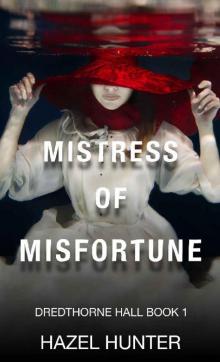 Mistress of Misfortune (Dredthorne Hall Book 1): A Gothic Romance
Mistress of Misfortune (Dredthorne Hall Book 1): A Gothic Romance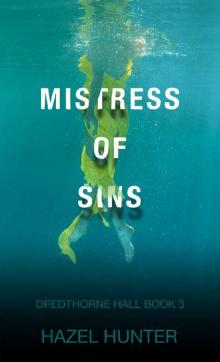 Mistress of Sins (Dredthorne Hall Book 3): A Gothic Romance
Mistress of Sins (Dredthorne Hall Book 3): A Gothic Romance![[Immortal Highlander, Clan Skaraven 01.0] Brennus Read online](http://i1.bookreadfree.com/03/immortal_highlander_clan_skaraven_01_0_brennus_preview.jpg) [Immortal Highlander, Clan Skaraven 01.0] Brennus
[Immortal Highlander, Clan Skaraven 01.0] Brennus Falling for Angels: A Scottish Time Travel Romance
Falling for Angels: A Scottish Time Travel Romance Domnall (Immortal Highlander, Clan Mag Raith Book 1): A Scottish Time Travel Romance
Domnall (Immortal Highlander, Clan Mag Raith Book 1): A Scottish Time Travel Romance Kanyth (Immortal Highlander, Clan Skaraven Book 4): A Scottish Time Travel Romance
Kanyth (Immortal Highlander, Clan Skaraven Book 4): A Scottish Time Travel Romance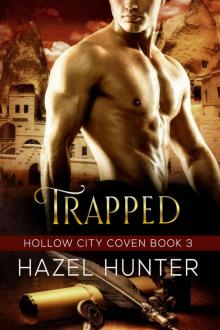 Trapped (Book Three of the Hollow City Coven Series): A Witch and Warlock Romance Novel
Trapped (Book Three of the Hollow City Coven Series): A Witch and Warlock Romance Novel Cadeyrn (Immortal Highlander, Clan Skaraven Book 2): A Scottish Time Travel Romance
Cadeyrn (Immortal Highlander, Clan Skaraven Book 2): A Scottish Time Travel Romance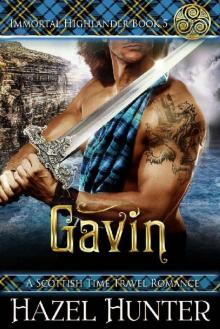 Gavin (Immortal Highlander Book 5): A Scottish Time Travel Romance
Gavin (Immortal Highlander Book 5): A Scottish Time Travel Romance Touched (Second Sight)
Touched (Second Sight)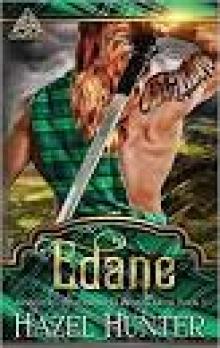 Edane (Immortal Highlander, Clan Mag Raith Book 3): A Scottish Time Travel Romance
Edane (Immortal Highlander, Clan Mag Raith Book 3): A Scottish Time Travel Romance Dominic: Her Warlock Protector Book 1
Dominic: Her Warlock Protector Book 1 Desert Thirst
Desert Thirst Jungle Fever Bundle
Jungle Fever Bundle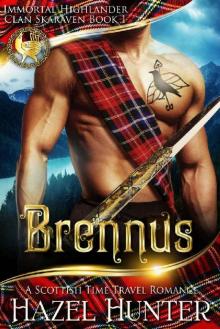 Brennus (Immortal Highlander, Clan Skaraven Book 1): A Scottish Time Travel Romance
Brennus (Immortal Highlander, Clan Skaraven Book 1): A Scottish Time Travel Romance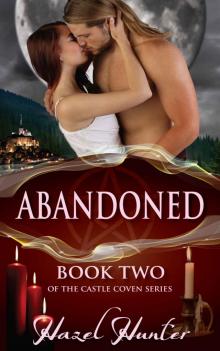 Abandoned (Book Two of the Castle Coven Series): A Witch and Warlock Romance Novel
Abandoned (Book Two of the Castle Coven Series): A Witch and Warlock Romance Novel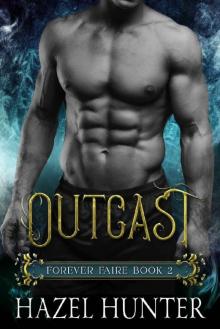 Outcast (Book Two of the Forever Faire Series): A Fae Fantasy Romance Novel
Outcast (Book Two of the Forever Faire Series): A Fae Fantasy Romance Novel Cadeyrn_A Scottish Time Travel Romance
Cadeyrn_A Scottish Time Travel Romance Colin: Her Warlock Protector Book 4
Colin: Her Warlock Protector Book 4 Claimed (Book Four of the Castle Coven Series): A Witch and Warlock Romance Novel
Claimed (Book Four of the Castle Coven Series): A Witch and Warlock Romance Novel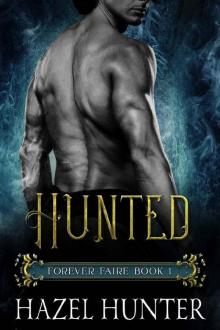 Hunted (Book One of the Forever Faire Series): A Fae Fantasy Romance Novel
Hunted (Book One of the Forever Faire Series): A Fae Fantasy Romance Novel Jackson
Jackson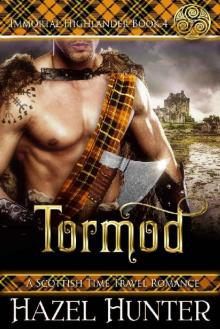 Tormod (Immortal Highlander Book 4): A Scottish Time Travel Romance
Tormod (Immortal Highlander Book 4): A Scottish Time Travel Romance Betrayed
Betrayed Words of Love
Words of Love Logan: Her Warlock Protector Book 3
Logan: Her Warlock Protector Book 3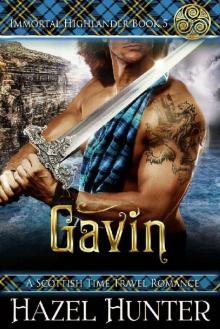 Gavin
Gavin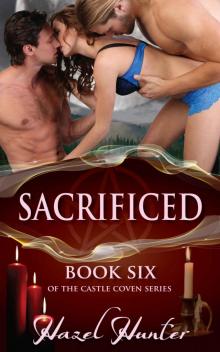 Sacrificed (Book Six of the Castle Coven Series): A Witch and Warlock Romance Novel
Sacrificed (Book Six of the Castle Coven Series): A Witch and Warlock Romance Novel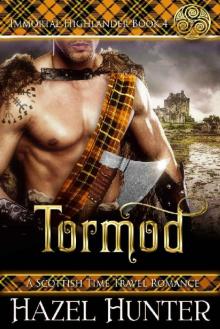 Tormod
Tormod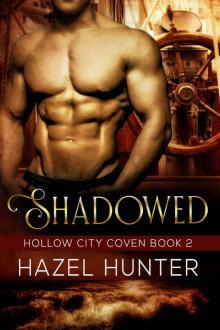 Shadowed (Book Two of the Hollow City Coven Series): A Witch and Warlock Romance Novel
Shadowed (Book Two of the Hollow City Coven Series): A Witch and Warlock Romance Novel Sebastian
Sebastian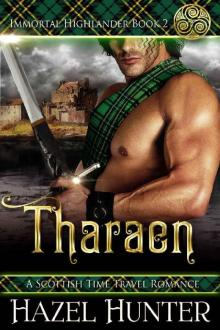 Tharaen (Immortal Highlander Book 2): A Scottish Time Travel Romance
Tharaen (Immortal Highlander Book 2): A Scottish Time Travel Romance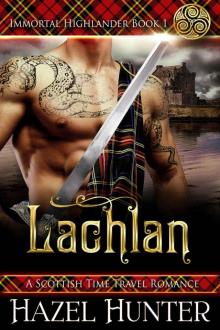 Lachlan (Immortal Highlander Book 1): A Scottish Time Travel Romance
Lachlan (Immortal Highlander Book 1): A Scottish Time Travel Romance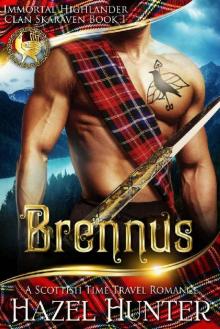 Brennus_A Scottish Time Travel Romance
Brennus_A Scottish Time Travel Romance Cadeyrn
Cadeyrn Mountain Wilds Bundle
Mountain Wilds Bundle Imprisoned (Book Five of the Castle Coven Series): A Witch and Warlock Romance Novel
Imprisoned (Book Five of the Castle Coven Series): A Witch and Warlock Romance Novel Hugh (Her Warlock Protector)
Hugh (Her Warlock Protector)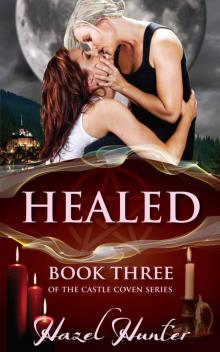 Healed (Book Three of the Castle Coven Series): A Witch and Warlock Romance Novel
Healed (Book Three of the Castle Coven Series): A Witch and Warlock Romance Novel Ruadri (Immortal Highlander, Clan Skaraven Book 3): A Scottish Time Travel Romance
Ruadri (Immortal Highlander, Clan Skaraven Book 3): A Scottish Time Travel Romance Matteo (Her Warlock Protector Book 8): A Paranormal Romance Novel
Matteo (Her Warlock Protector Book 8): A Paranormal Romance Novel Remembered
Remembered Evander (Immortal Highlander Book 3): A Scottish Time Travel Romance
Evander (Immortal Highlander Book 3): A Scottish Time Travel Romance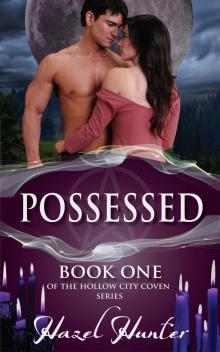 Possessed (Book One of the Hollow City Coven Series): A Witch and Warlock Romance Novel
Possessed (Book One of the Hollow City Coven Series): A Witch and Warlock Romance Novel